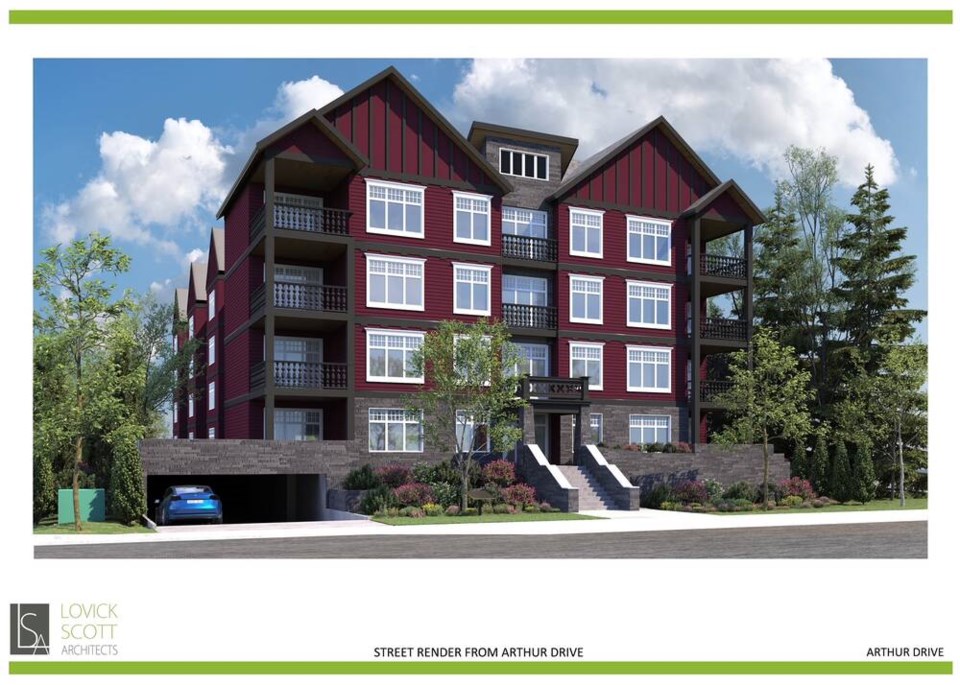The City of Delta is currently gathering feedback on a recently submitted application to build a four-storey, 81-unit market rental complex in the 4500-block of Arthur Drive in Ladner.
A public meeting is also to be scheduled for the proposal, which includes the demolition of an existing heritage building at the site that is in disrepair. The rezoning application currently requires an Official Community Plan (OCP) amendment, thus a public hearing.
In June 2023, the applicant presented a proposed four-storey, 56-unit rental apartment building during a Committee of the Whole meeting of council, but a formal application was not submitted to the city.
At that presentation to council, architect Andrea Scott with Lovick Scott Architects Ltd., said there is an immediate need for rental accommodation in the community.
A revised proposal was recently submitted as a formal application for 79 units, but that has now changed to 81 units.
Due to the rental tenure of the proposed apartments, the applicant added more units in order to ensure the proposal can be brought forward as a rental project, a planning department report notes.
The current application does not state that any of the rental units will be at below-market rates.
A recent report to the Metro Vancouver Board of Directors notes that the demand for rental housing is significantly outpacing the growth in supply and availability of rental units.
Between the 2016 and 2021 Census periods, total renter households in Metro Vancouver increased by over 13 per cent, while the purpose-built rental stock increased by just 5.6 per cent.
At the same time, the average vacancy rate for rental apartments has remained consistently very low, while the viability of constructing new rental projects continues to be challenged by rising construction costs and interest rates, labour shortages and significant inflation, the report notes.
Meanwhile, while inclusionary housing typically does not provide deeply affordable units, it is an effective tool to generate below-market units for middle income households, the report explains.
The report adds that, depending on a program design, inclusionary housing policies can increase the number of non-market rental units owned or operated by non-profits, which generally deepen in affordability over time.
To date, eight member jurisdictions in Metro Vancouver have adopted inclusionary housing, and several others have other policies that similarly achieve below-market units through incentives like density bonusing. As well, there is a number of Metro Vancouver member jurisdictions who have identified inclusionary housing as a future priority as part of their housing action plans.
The City of Delta is not among the municipalities identified.
However, the city’s planning department has identified density bonusing as one of the tools available to help achieve a housing target Delta was handed by the province.
The action includes establishment of a framework to achieve additional affordable housing in Delta through the use of density bonusing, as well as other zoning tools, in order to further incentivize the construction of affordable housing and purpose-built rental.



